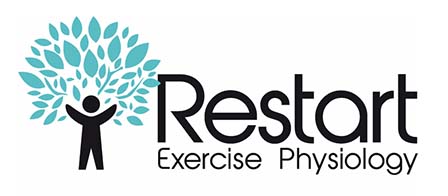Lack of physical activity, injury, and age-related changes can all lead to knee pain, which can limit your movement and curtail your activities. Exercise Physiology helps to relieve knee pain and strengthen your body.
How your knee works
The knee is a weight-bearing joint that’s in near-constant use in daily life. It supports your weight as you walk, stand and kneel, and absorbs the impact of more vigorous activities like running or jumping.
Your knee is made up of two long leg bones – the femur in your thigh and the tibia in your shin – which meet at the patella (kneecap) and are covered by shock-absorbing cartilage. The knee joint is stabilised by soft tissues such as muscles, tendons and ligaments.
What knee pain feels like
Depending on the underlying cause, a painful knee may produce symptoms like:
- Stiffness, for example not being able to fully bend or straighten you knee
- Swelling and inflammation
- Redness
- Feeling hot to the touch
- Weakness
- Instability or ‘giving way’
- Popping or crunching sounds when you move.
Causes and types of knee pain
Knee pain and swelling can be caused by an acute injury, overuse or chronic conditions that become more common with age.
Because your knee is a weight-bearing joint that’s in frequent use, it can be prone to sudden injury. Common knee injuries include:
- Ligament injuries
- Fractures
- Meniscus tears (a cartilage injury)
- Random pain onset, with no known trigger.
Overuse injuries of the knee include:
- Patellar tendinitis (runner’s knee)
- ITB syndrome, which affects the connective tissue that runs from your hip to your knee
- Bursitis, an inflammation or infection of the fluid-filled sacs in your knee.
Persistent conditions which can trigger knee pain include:
- Many types of arthritis, such as osteoarthritis, rheumatoid arthritis or post-injury arthritis
- Obesity, as this puts extra strain on weight-bearing joints like your knees.
Knee pain can also be a form of referred pain stemming from tightness or weakness in an adjoining part of the body.
Treating the cause as well as the symptom
As you can see, it’s important to know the true cause of your knee pain. A good treatment plan should address both the obvious symptoms (knee pain) and any underlying causes that are triggering it. This may include performing ankle mobility exercises to allow greater freedom of knee movement, or developing greater strength in the Gluteus and Quadricep muscles to better stabilise the knee.
Treatment for an underlying cause may involve lifestyle change or even surgery (as a last resort), depending on your care team’s advice.
Exercise Physiology for knee pain
Exercise plays an important role in the management of knee pain and of underlying conditions like arthritis or obesity. It can help with prehab prior to surgery or rehab after surgery, and can also help improve your emotional wellbeing as you build confidence to overcome knee pain.
If you’re living with a painful knee, though, you may feel cautious about exercise or worried about overdoing it and making the problem worse.
That’s where an Exercise Physiologist steps in.
Treating knee pain at Restart Exercise Physiology
As highly qualified healthcare professionals, we know how to help you improve your knee strength and mobility in the right way and at the right pace.
We also understand that your knee does not exist in isolation. It’s one part of your musculoskeletal system. It’s inextricably linked to the rest of your body. So we examine your whole body carefully. We assess any underlying biomechanical or postural issues that may be contributing to your knee pain to ensure our treatment targets the cause as well as the symptom.
“I was referred to Restart to rehabilitate what has been a chronic knee issue for me for over six years.
The team at Restart started me off with gentle movements and exercises, but paid close attention to how I was managing with and responding to the sessions. This allowed them to continually update and adjust my program based on how I was progressing, gradually increasing the intensity.
All of this has led to awesome results for me!! I recently re-tested my movement and pain levels compared to the baseline from my first session. In less than six months, I have made amazing progress. I honestly couldn’t have got there without Restart!”
Nikki, 44
If you’re experiencing ongoing knee pain, we’d love to help you move forward.
